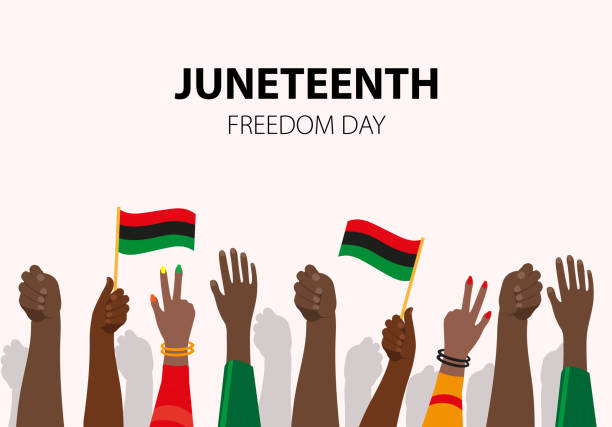
Juneteenth, also known as Freedom Day or Emancipation Day, is a significant commemoration in American history. It marks the emancipation of enslaved African Americans and stands as a symbol of resilience, freedom, and the ongoing struggle for racial justice. While Juneteenth’s origins date back to 1865, its relevance remains profound today, serving as a reminder of the progress made and the work that lies ahead. What is the significance of Juneteenth? What actionable steps can we take to promote equity, inclusion, and diversity in society?
The Significance of Juneteenth
On June 19, 1865, Union soldiers arrived in Galveston, Texas, and announced that the Civil War had ended and enslaved people were free. This news, delivered two and a half years after the Emancipation Proclamation, marked a turning point in the struggle for African American freedom and equality. Juneteenth represents the belated realization of freedom for those who had been denied it for far too long. It is a day of celebration, reflection, and education, shedding light on the history, contributions, and struggles of African Americans.
Relevance in the Present
Juneteenth’s relevance today lies in its ability to foster dialogue, awareness, and action surrounding the ongoing pursuit of equity, inclusion, and diversity. Despite progress, systemic inequalities and racial injustice persist in various aspects of society. Juneteenth serves as a reminder that the fight for justice and equality is not confined to the past but is an ongoing battle. It compels us to address the systemic barriers that prevent marginalized communities from achieving full equality and to work towards creating a more inclusive and diverse society.
Promoting Equity, Inclusion, and Diversity
- Education and Awareness: Acknowledging and teaching the history and significance of Juneteenth in educational curricula can help create a more informed and empathetic society. This knowledge lays the foundation for dismantling racial biases and fosters a greater appreciation for the diverse experiences and contributions of African Americans.
- Celebrating Diversity: Embracing diversity means actively seeking out and valuing different perspectives, experiences, and voices. Organizations and communities can promote diversity by creating inclusive environments, implementing fair hiring practices, and providing equal opportunities for advancement and success for individuals from all backgrounds.
- Challenging Systemic Injustices: Addressing systemic inequalities requires advocating for policy changes, such as criminal justice reform, equitable access to education and healthcare, and ending discriminatory practices. Engaging in peaceful protests, supporting grassroots organizations, and amplifying marginalized voices can bring about meaningful change.
- Allyship and Solidarity: Actively standing in solidarity with marginalized communities is crucial. Being an ally means listening, educating oneself, and using one’s privilege to advocate for equitable treatment and opportunities for all. It involves actively challenging and dismantling systemic racism whenever and wherever it is encountered.
- Support Black-Owned Businesses and Organizations: Economic empowerment is a vital aspect of promoting equity. Supporting Black-owned businesses and organizations helps create economic opportunities, strengthen communities, and amplify the voices of Black entrepreneurs and leaders.
Juneteenth serves as a reminder of the journey towards justice and equality while inspiring action to address the systemic challenges that persist in society. By embracing the principles of equity, inclusion, and diversity, we can collectively contribute to creating a more just and inclusive world. Let us use this occasion to reflect, educate, and take meaningful steps towards dismantling systemic barriers and promoting a society that celebrates and respects the diverse experiences of all its members.

